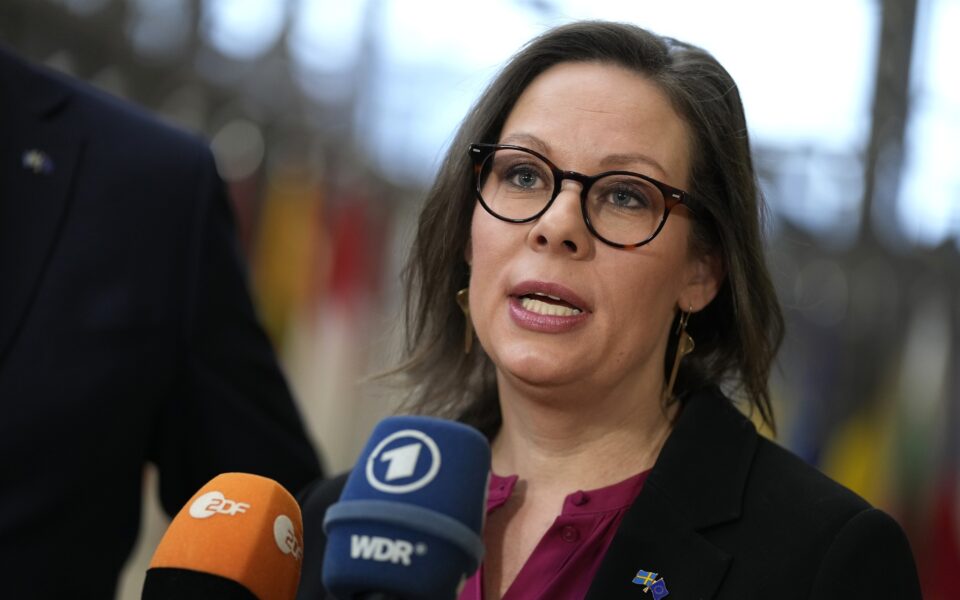EU pact seeks to bring ‘more order’ to migration, says Swedish official

The new European Union framework on migration agreed at ministerial level in Luxembourg last week would be binding for the bloc’s member-states, but it would also give them a range of options on how they choose to participate in migrant relocations, Swedish Migration Minister Maria Malmer Stenergard, who chaired the June 8 meeting, tells Kathimerini.
Stenergard objects to the term “fine” to describe the 20,000 euros each member-state would have to pay for each migrant they refuse to host under the scheme, saying it is, rather, a “support measure.”
The agreement, which she described as “historic” in comments after the meeting, would bring “more order” to EU migration policy if it is ratified by the European Parliament, though she also notes that two member-states were opposed to it, meaning it is not a done deal.
Was there complete consensus at last week’s meeting? How binding is the agreement for the member-states and when will it enter into force?
There was a broad consensus in the council. Two countries opposed. The agreement represents the council’s position for future final negotiations with the Parliament, but the legislation that the pact targets is regulations that are binding on all member-states. I am convinced that it will lead to more order in migration.
‘The council position includes new language clarifying that member-states have the option of referring applicants to safe third countries to which they have a connection’
How will migrants be selected and distributed for movement from the first receiving countries to the rest of the EU?
It is flexible with how you want to contribute – financially, through redistribution or other support measures. If the receiving country requests it, one can contribute with, for example, capacity building. If a country chooses redistribution as part of its effort, the giving state may claim a number of them, which the receiving state then selects.
Will the provision for a “fine” of 20,000 euros – per migrant that a country will not accept – lead in your opinion to the compliance of the member-states with the spirit of the agreement? Or can you imagine some governments paying this money in order to avoid accepting immigrants?
The advantage of the solidarity mechanism is that countries can choose for themselves. I object to calling it fines, it is a support among others. I think some countries will see value in contributing in ways other than receiving refugees, while others will receive them. Flexibility was a very important part of getting support for the proposal.
In your opinion, what does this agreement signal for the European management of the migration issue?
Europe has shown in recent years that we are strong when we act together. This applies to Belarus’ exercise of hybrid warfare against certain member-states, and it applied when we quickly provided protection to Ukrainians fleeing Putin’s war. I think it has been very clear that migration to the EU has not worked for a long time. It became particularly clear during the refugee crisis in 2015. Now, EU countries have come together, and it shows great strength and ability to take responsibility. The model we have agreed on in our position signals solidarity and orderliness.
Is there any provision in the field of EU cooperation with third countries, such as Turkey?
Yes. The council position includes new language clarifying that member-states have the option of referring applicants to safe third countries to which they have a connection. Expanding on today’s very limited provision, this is an important step to new tools to manage migration. There is, however, no explicit provisions targeting EU-Turkey relations.





